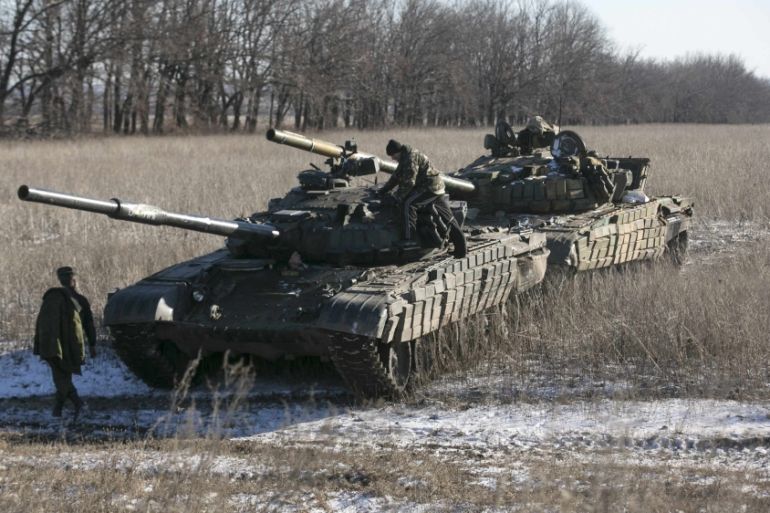EU can still protect the spirit of Ukraine’s revolution
A year after Maidan, EU must give Ukraine the support it needs to build a stable democratic state.

One year after Maidan succeeded in its call for a democratic government in Ukraine, and Russia responded by instigating a separatist conflict in the east of the country, Ukraine’s democratic future remains at stake.
The EU has failed to prevent the emergence of another protracted conflict at its doorstep. Even if the current ceasefire holds, which looks unlikely, it will at best freeze the current status quo in the east. The reintegration into Ukraine of the territory controlled by the so-called People’s Republics of Donetsk and Luhansk is now a chimera and Crimea is forever lost.
Europe has by all appearances been outmanoeuvred by Moscow. But this is only a tactical defeat. The EU can still protect the spirit of Ukraine’s democratic revolution and its ambition to integrate within a rules-based market-driven European community – the very idea that the Kremlin is fighting to discredit and destroy with this war of attrition.
The EU is unlikely to give arms or otherwise confront Moscow militarily, but it could offer a much more potent antidote. It should give Ukraine all the support it needs to build a stable democratic state that serves its citizens.
Mobilising manpower
It has already done a lot. It mobilised unprecedented manpower and resources, including a specialised support task force to help prepare a reform programme, a civilian security sector reform mission, and substantial humanitarian, development and macro-financial assistance.
The latest IMF bailout of $40bn over four years includes $2.2bn from the EU budget – the largest government contribution. But this remains short of Ukraine’s needs and one-third of the package still depends on a deal with creditors.
|
|
With Europe grappling with its own economic difficulties, the logic of its current approach is to keep Ukraine on life support teetering on the verge of default just long enough for sanctions to push Russia to reconsider. This is a risky calculus.
Ukraine might not get the luxury of peace to make its reforms succeed. Disillusionment among civil society is mounting and disappointment with governance has deepened. For Ukraine to recover its financial stability and demonstrate the impact of reforms to its citizens, it will need more than just the minimum to survive.
The IMF bailout should only be the first step of sustained international support. The EU’s foreign affairs budget is now almost entirely depleted, but member states can do more on a bilateral basis and there are other untapped EU resources that could be mobilised. An international investment and donors’ conference scheduled for April would provide a good opportunity to solidify support.
Ukraine must deliver
For this to happen, Ukraine too will have to deliver. To sell a new support plan to international donors, the government will need to demonstrate strong political will for reform and deliver tangible successes. Donors are asking each other: “Why send more good money after bad when corruption is rampant and there are no reform achievements?”
EU officials are disconcerted by signs of infighting between Ukraine's politicians, and divisions and lack of trust between the president and prime minister.
EU officials are disconcerted by signs of infighting between Ukraine’s politicians, and divisions and lack of trust between the president and prime minister. Political competition blocks decision-making and is a drag on reforms.
It has slowed down the set-up of Ukraine’s anti-corruption bureau and its prevention mechanism, as well as the implementation of crucial public administration reforms. It is also worryingly reminiscent of the disappointments of the Orange revolution of 2004.
Some positive steps have been taken. A new prosecutor-general was just appointed in place of his discredited predecessor and he has already issued an arrest order for misuse of power for a former Yanukovich loyalist.
Justice reform bill
A justice reform bill was approved that could help stamp out corruption. But Ukraine has yet to face the challenging task of cleaning the ranks of its judiciary through a transparent re-evaluation based on professional criteria.
Much more needs to be done to begin in earnest the implementation of Ukraine’s political commitments under its Association Agreement with the EU.
A related national reform plan in preparation since last year that aimed to detail objectives and deadlines has yet to be put together. Ukraine has also done little to implement legislative and institutional reforms to unlock visa-free travel with the EU that range from anti- corruption and anti-discrimination to migration policy.
Reforms have never been more needed for Ukraine’s survival. If it does its homework, it should be able to count on continued and unwavering EU support. Even with the loss of Crimea and another 7 percent of territory in the east, Ukraine can still emerge as a stronger, more democratic state with the opportunity to choose its future development independently.
For Europe, the only definite way to end the current conflict and its own standoff with Russia is to demonstrate that such a democratic Ukraine can be a viable state that delivers for its citizens. Only then will it vindicate the sacrifices that Ukrainians made on Maidan square.
Iskra Kirova is a policy analyst at the Open Society Foundations.
The views expressed in this article are the author’s own and do not necessarily reflect Al Jazeera’s editorial policy.
